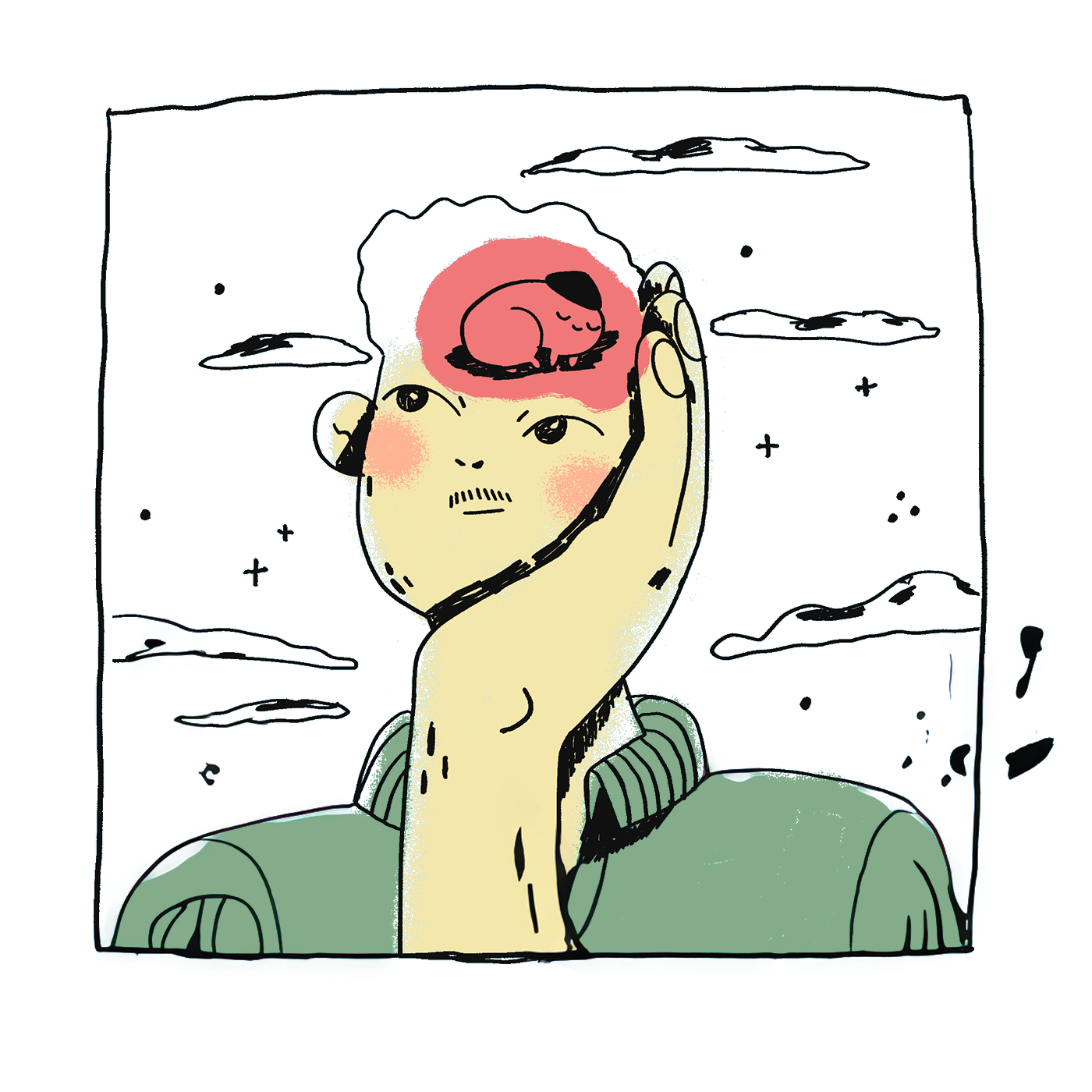Talk to us today
Talk to us today
Are you struggling with your mental health and looking
to see if you may have a diagnosis?
Perhaps you already have a diagnosis and you are
looking for a comprehensive treatment plan?
Are you having problems with your mood or anxiety,
making day to day life an uphill battle?
Eton Psychiatrists can help with all of this and more. Read on for more information!
One of the major challenges in treatment of ADHD and Autism is aftercare and access to neurodivergent friendly psychological support and therapy. We offer wide range of psychological therapies which is carefully adapted to the needs of people with neurodiversity. We offer initial assessment to device a personalised therapy to offer effective aftercare and therapy to optimise your treatment plan.
1 in 4 of us have experienced a problem with our mental health in the past year1, and 1 in 6 of us in the past week2. Although there has been a greater awareness of mental health in recent times, only 1 in 8 people with mental health problems are currently in treatment for them1. This could be due to a greater difficulty in accessing specialist support, with 1 in 4 patients waiting for over 12 weeks to start specialist treatment 3.
Our team at Eton Psychiatrists is carefully selected, and includes specialists in general and older adult mental health, with several decades of combined expertise in: depression, anxiety, bipolar disorder, OCD, PTSD, and more.
We are on hand to provide you with prompt, thorough and holistic care, for whatever mental health problems you might be facing.


Your journey for an ADHD assessment with Eton Psychiatrists starts here! If you want to proceed with an assessment, or if you want more information before deciding, contact our dedicated team of medical secretaries and clinicians at info@etonpsychiatrists.co.uk or 020 4586 8616
We will aim to respond to your query within 72 hours by email. If you have an urgent query, please do not hesitate to call us. If the query is of a clinical nature, we will contact one of our dedicated psychiatrists to ensure that all your questions are answered promptly, and in full.
If you then decide to proceed with an assessment, we will then ask you for some information, to help your psychiatrist prepare for your appointment.

Your psychiatrist will want to know a little bit about you and the symptoms that you have been experiencing so that the assessment can focus on your difficulties. Our registration form will allow you to provide this information in a structured manner. We will send a few brief questionnaires that evaluate different mental health symptoms.
With your permission, we will also write to your GP, asking them to provide a summary of your medical history. Additionally, you will need to complete our registration form and provide a form of ID.
While you're completing your onboarding, please let the team know about your availability for an assessment, whether you'd like the assessment to be remote or face-to-face, and if you have a preference for a particular psychiatrist. We aim to offer assessments within 2 weeks of your inquiry.
You are now ready for your assessment! One of our team members will provide you with an appointment link or directions to our Harley Street clinic. Please do not hesitate to contact us if you have any further questions leading up to your appointment!

At Eton Psychiatrists, our assessment appointments last for up to 90 minutes. This is to ensure that a detailed assessment can take place, as well as time for a bespoke treatment plan to be created.
Prior to your appointment, your psychiatrist will have reviewed all of your pre-assessment information, and will spend some time getting to know you better. Your psychiatrist will ask you questions about any current symptoms, and how they might be impacting upon your work, your study, or your home life. They will also enquire about these symptoms in childhood, and other aspects of your background, such as your education, employment, relationships and medical history.
Towards the end of the appointment, your psychiatrist will discuss with you a formulation or diagnosis, carefully explaining how this conclusion was reached. The remaining time will then be spent developing an holistic treatment plan. This is likely to include lifestyle, psychological and medication recommendations. You will have time to ask any questions that you need to, so that your understanding of the plan is clear.

At Eton Psychiatrists, we pride ourselves on our high level of post-diagnostic support. We think that it is important to go further than other clinics, and provide you with detailed information about your diagnosis, curated useful resources, and detailed information on treatment options and lifestyle advice. This will be provided to you electronically, and as a complement to any discussion that you may have with your psychiatrist about treatment options. This information pack will be personalized for your individual needs.
Your psychiatrist will then start work on your detailed assessment report which will be delivered to you within 2 weeks of your appointment. If you require proof of diagnosis more urgently, a brief letter will be provided to you within 48 hours. Please carefully read your report, and let one of our team know if you want to request any amendments.

Depending on the nature of your mental health difficulties and the reason for your appointment, your psychiatrist may recommend further appointments. This could be to monitor the response to any prescribed medication, or to manage any risk.
Your psychiatrist will clearly explain the purpose of these appointments, and will estimate how many of these appointments, and over what period of time they should occur.

Depending on the nature of your mental health difficulties and the reason for your appointment, you may not require a follow-up appointment. For example, perhaps you requested the appointment for a second opinion on diagnosis, rather that for the purpose of seeking treatment, or perhaps your difficulties are best handled in primary care.
In this case, your psychiatrist will provide you, and with your consent, your GP, with a detailed care plan, which may include advice on medication, psychological therapy, and under what circumstances a further appointment with your psychiatrist would be necessary.

After a period of follow-up appointments, your mental health problems may have improved to the point where you no longer need regular reviews from your psychiatrist. If discharge to your GP is recommended, both you and your GP will be provided with a detailed ongoing treatment plan. This may include suggestions for
frequency of future GP appointments, further recommendations for medication and therapy, or a crisis plan, for any future deterioration of your health. Many mental health problems can be long-term, and may require ongoing specialist support.
Your psychiatrist may recommend ongoing appointments to manage any chronic problems. They will always seek to rationalise the frequency of these appointments, and with your permission, seek to involve your GP wherever possible, in order to reduce ongoing costs.
Around three quarters of a million people are thought to be living with Obsessive Compulsive Disorder (OCD) in the UK currently4. If you are having distressing and intrusive thoughts, then you may have OCD. These thoughts can be shocking, or blasphemous, and cause a great deal of anxiety.
You may engage in behaviours called ‘compulsions’ in an attempt to relieve this anxiety. For example excessive handwashing to deal with intrusive thoughts about illness or contamination. This could include counting or checking behaviours, and could be physical acts or mental rituals. This might help to reduce anxiety in the short-term, but perpetuates a cycle of further obsessive thoughts, anxiety and compulsive acts.
OCD can affect your ability to work, to sustain friendships and relationships, and can make every day activities such as shopping and cleaning, much more difficult to do. Fortunately, there are a range of treatments available that can allow you to live a rich and fulfilling life.
Selective Serotonin Reuptake Inhibitors (SSRIs) have proven to be effective in treating OCD, with around 60% of individuals responding to treatment. 5 Other classes of medication such as Tricyclic Antidepressants have also shown to be effective too.
There are also a range of psychological treatments for OCD, such as Exposure and Response Prevention (ERP) and Cognitive Therapy (CT). In ERP, your therapist will help you break the cycle of obsessions and compulsions by preventing the compulsive act. After a period of time, your anxiety will reduce, as we have a natural tendency to become more calm in stressful situations after a period of time.
Sometimes it can be difficult to access specialist support for OCD in the UK, with some people waiting over a year for treatment.
Bipolar Affective Disorder (BPAD), used to be known as ‘manic depression.’ Around 1 in 508 of us are affected by this condition which causes a severe swinging of moods, that can last for weeks or months. Periods of low mood are called ‘depressive episodes,’ and periods of elevated moods are called ‘hypomanic’ or ‘manic’ episodes, depending on their severity. In between these episodes, your mood may be stable for months, or even for many years.
The impact of elevated moods can be overlooked; you may overspend, or make risky decisions, or even develop delusions of special abilities which could put your life at risk.
BPAD is a serious mental health condition, that can affect your ability to work, to maintain relationships, and can make physical health problems more likely. Fortunately, there are several treatments that help to reduce the severity and number of episodes of depression or of elevated mood, such as mood-stabilisers, and anti-psychotics.
BPAD is often a long-term mental health problem, and so it can be difficult to access psychiatric or psychological support when not in crisis. The management of BPAD can be complex, and is therefore best overseen by a specialist. Often multiple treatments are needed to control both of the extremes of mood. Medication is helpful in treating depressive episodes, manic episodes and also preventing them from recurring, once your mental health is stable. Psychological therapy can also be helpful in between manic episodes, and during depressive episodes.
Depression encompasses a range of related mental health problems, and is one of the leading causes of disability worldwide. 9 Depression can sometimes be misunderstood; it isn’t just having a low mood, and you don’t have to be frequently tearful to be depressed. Depression might show itself by you losing interest in activities that you would normally enjoy, in a loss of appetite, in difficulty sleeping or concentrating, or becoming quick to anger.
Depression has many causes, including genetic factors, and undergoing traumatic life events, such as bereavement. It also has many treatments including a wide range of psychological therapies such as Cognitive Behavioural Therapy (CBT), and Cognitive Analytic Therapy (CAT), as well as a large number of different medical treatments like Selective Serotonin Reuptake Inhibitors (SSRIs) and Tricyclic Antidepressants (TCAs). In more recent times, innovative treatments to stimulate certain parts of the brain such as repetitive Transcranial Magnetic Stimulation (rTMS) have also proven to be effective.
Navigating the vast number of treatments available for this common mental health problem, can seem daunting. Specialist care can give you the time and space to discuss a range of different options, with your specific circumstances and needs carefully being taken into account. This can allow a bespoke treatment plan to be created, and your response to this can be carefully monitored over time.